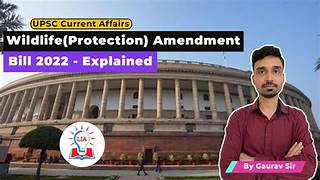Waqf

Introduction:
The Waqf (Amendment) Bill, 2024, is a significant piece of legislation introduced in India with the aim of reforming the management and regulation of Waqf properties. The bill seeks to address various issues related to the administration of these properties and aims to improve transparency, accountability, and efficiency within the Waqf system. Here’s a detailed explanation of the key aspects and implications of the Waqf (Amendment) Bill, 2024.
Understanding Waqf Properties:
Waqf refers to a property or asset donated by a Muslim individual or community for religious, charitable, or educational purposes under Islamic law. These properties are managed by Waqf boards and are used to fund activities such as the maintenance of mosques, educational institutions, hospitals, and other charitable works.
Historical Context:
The Waqf Act of 1954 initially provided the framework for the management of Waqf properties in India. It established Waqf boards at both the state and central levels to oversee the administration of these properties. However, over the years, concerns about mismanagement, lack of transparency, and inefficiencies within the system prompted calls for reform.
The Waqf (Amendment) Bill, 2024, introduces several key changes aimed at addressing these concerns.
- Enhancing Transparency and Accountability:
The bill aims to improve transparency in the management of Waqf properties by mandating regular audits and public disclosures. This includes detailed reports on the financial status and management of Waqf assets, which will be made accessible to the public and relevant authorities. - Streamlining Administration:
The amendment seeks to streamline the administrative processes within Waqf boards. It proposes the establishment of a centralized database to manage Waqf properties, ensuring that records are accurate, up-to-date, and easily accessible. - Strengthening Governance:
The bill includes provisions for strengthening the governance structure of Waqf boards. This involves appointing qualified individuals to key positions, implementing clear guidelines for decision-making, and enhancing the overall efficiency of board operations. - Resolving Disputes:
The bill proposes the creation of special tribunals to handle disputes related to Waqf properties. This is intended to provide a quicker and more efficient resolution to conflicts that arise over the management or ownership of Waqf assets. - Regulating Encroachments:
One of the key issues faced by Waqf properties is encroachment. The amendment aims to address this problem by introducing stricter regulations and penalties for unauthorized occupation or use of Waqf land and properties.
Major Provisions of the Bill:
- Centralized Database and Record-Keeping:
The bill mandates the creation of a centralized electronic database for Waqf properties. This database will include comprehensive information about each property, including its location, ownership details, and current status. Regular updates and maintenance of this database will be required to ensure accuracy and transparency. - Audits and Financial Disclosures:
Waqf boards will be required to conduct annual audits of their financial statements and management practices. These audits will be carried out by independent auditors, and the results will be published in the public domain. Additionally, Waqf boards must provide detailed financial reports and disclosures to stakeholders, including donors and beneficiaries. - Governance and Oversight:
The bill introduces stricter qualifications for individuals appointed to Waqf boards. It emphasizes the need for experienced professionals with expertise in finance, law, and administration. The bill also outlines clear guidelines for the appointment and removal of board members, ensuring that governance remains effective and transparent. - Special Tribunals for Dispute Resolution:
Special tribunals will be established to handle disputes related to Waqf properties. These tribunals will have the authority to adjudicate cases involving property management, encroachments, and other related issues. The aim is to expedite the resolution of disputes and reduce the burden on regular courts. - Anti-Encroachment Measures:
The bill introduces measures to prevent and address encroachments on Waqf properties. This includes the implementation of regular inspections and the imposition of fines and penalties for unauthorized occupation. Additionally, there will be provisions for the recovery of encroached land and properties. - Public Involvement and Oversight:
To enhance public involvement, the bill provides for the establishment of advisory committees comprising community representatives, experts, and stakeholders. These committees will play a role in overseeing the activities of Waqf boards and ensuring that decisions are made in the best interest of the community.
Implications of the Bill:
Table of Contents
- Improved Management:
The reforms introduced by the bill are expected to lead to more efficient and transparent management of Waqf properties. With better record-keeping, financial oversight, and governance, the bill aims to address many of the issues that have plagued the Waqf system in the past. - Enhanced Accountability:
By requiring regular audits and public disclosures, the bill seeks to increase accountability among Waqf boards. This will help build trust among donors, beneficiaries, and the general public, ensuring that Waqf properties are used effectively for their intended purposes. - Faster Dispute Resolution:
The creation of special tribunals for dispute resolution is likely to expedite the resolution of conflicts related to Waqf properties. This will reduce the burden on regular courts and provide a more efficient mechanism for addressing grievances. - Community Involvement:
The bill’s emphasis on public involvement and oversight is expected to foster greater community engagement in the management of Waqf properties. Advisory committees will provide a platform for stakeholders to contribute to decision-making and ensure that community needs are addressed..
Conclusion:
The Waqf (Amendment) Bill, 2024, represents a significant step towards reforming the management and regulation of Waqf properties in India. By focusing on transparency, accountability, and efficiency, the bill aims to address longstanding issues and improve the overall functioning of Waqf boards. While the proposed changes have the potential to bring about positive reforms, their successful implementation will depend on effective execution and oversight. The bill reflects a commitment to enhancing the management of Waqf properties and ensuring that they continue to serve their intended charitable and religious purposes effectively.








